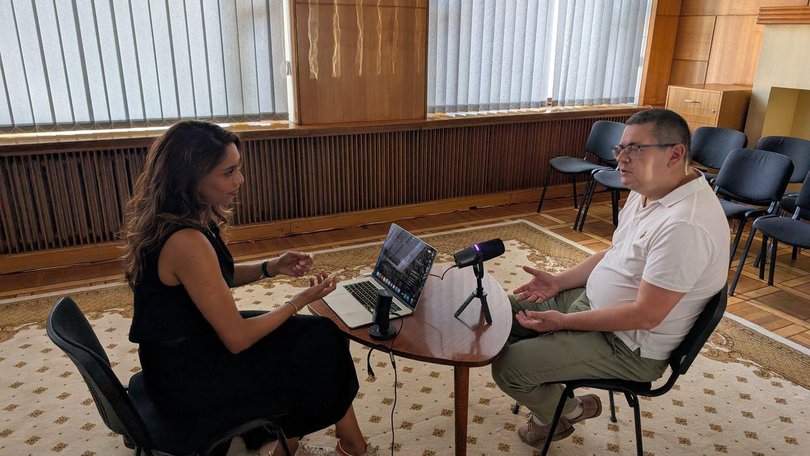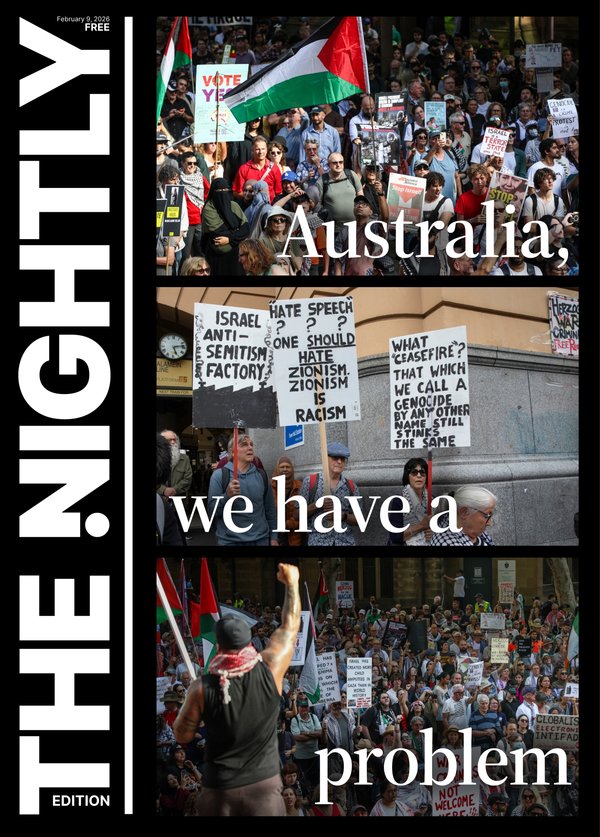LATIKA M BOURKE: Zelensky must regain trust after being forced to backdown in Ukraine’s corruption crisis
LATIKA M BOURKE: The Ukraine anti-corruption crisis has thrown Zelensky’s political judgement into question.

Faced with the most serious political crisis of his wartime leadership, Volodymyr Zelensky was at pains on Thursday to show that he is listening, responding, and thereby reinforcing Ukraine’s democracy, after being accused by critics of toying with autocracy.
The Ukrainian President sparked three nights of protests in Kyiv and across the country after signing into law a bill that placed under political control the country’s two anti-corruption bodies, the National Anti-Corruption Bureau (NABU) and the Specialised Anti-Corruption Prosecutor’s Office (SAPO).
Both were established at the request of the international community to deal with Ukraine’s post-Soviet corruption problems and followed the 2014 Maidan protests that led to the downfall of the pro-Russian former president Viktor Yanukovych.
Sign up to The Nightly's newsletters.
Get the first look at the digital newspaper, curated daily stories and breaking headlines delivered to your inbox.
By continuing you agree to our Terms and Privacy Policy.The bill was so suddenly foisted onto the Ukrainian public that it was rammed through parliament before MPs in his own party even had time to examine it.
Oleksandr Merezkho, Chair of the Ukrainian parliament’s Foreign Affairs committee, is one of Zelensky’s MPs who was forced into the unenviable position of having to choose between backing his wartime president or dissenting.
He chose party unity and backed the bill, despite voicing doubts internally about the likely blowback.
”It was quite unexpected, honestly, I didn’t have much time,” he said, in an interview in Kyiv for an upcoming episode of the Latika Takes podcast.
“Even though I understood what might be the consequences.
“I talked to my colleagues about this, I raised some concerns and doubts about this.
“Nevertheless, I did it fully understanding what consequences might be for Ukraine.
“But in the long run, I still believe in the common sense, that it’ll prevail.
“But for what we have right now, we have a hope that in the very near future, the president will come up with a new law.
“Which will be maybe kind of a compromise, but in any case, it will uphold the independence of anti-corruption bodies.”
Zelensky sought to do just that by presenting a new law to parliament that he said would reinstate their independence.
“I’ve just approved the text of a draft bill that guarantees real strengthening of Ukraine’s law enforcement system, independence of anti-corruption agencies, and reliable protection of the law enforcement system against any Russian influence or interference,” he said in a statement.
“It includes real tools, excludes any Russian ties, and upholds the independence of NABU and SAPO.
“The draft bill will be submitted to the Verkhovna Rada of Ukraine today.
“It is important that we are maintaining unity.
“It is important that we are preserving independence.
“ It is important that we respect the position of all Ukrainians and are grateful to everyone who stands with Ukraine.”
In his video address, Zelensky said everyone who with access to state secrets must undergo regular polygraph checks.
NABU released a statement saying it backed the new law and that it restored “all due process powers and guarantees.”
“NABU and SAP participated in the preparation of the text and urge the Verkhovna Rada of Ukraine to adopt the President’s initiative as soon as possible on the basis and as a whole,” the statement said.
It remains to be seen if the text is accepted by Zelensky’s critics.
But it is no ordinary backdown. It followed not just an unprecedented wartime outcry on the streets of Kyiv but also calls made with Ukraine’s most influential European allies, European Commission President Ursula von der Leyen, UK Prime Minister Keir Starmer and Germany’s Chancellor Friedrich Merz.
He acknowledged as much when he said in his video address that the text of the bill incorporated proposals from Europe, UK and Germany.
Zelensky was widely warned that his assault on the anti-corruption bodies would be a major setback to Ukraine’s struggle to join the European Union. What has not been said out loud is the obvious fear of a revolution in Ukraine collapsing not just the government but the entire fight against Russia.
And as was painfully pointed out by opposition MPs at home, the move against NABU risked delivering Russian President Vladimir Putin a giant propaganda gift.
The fate of the replacement bill remains unknown, including whether he can gather enough support in parliament or Verkhovna Rada given Zelensky’s margin is tight — he has 233 members in parliament and 226 votes are required to pass the law but in theory the number of MPs that can be relied upon ranges between 170-180.
But the episode has exposed three things.
Firstly, Zelensky’s political judgment is seriously in question, and the concerns about the level of influence wielded by his powerful chief of staff, Andriy Yermak, will only grow.
Secondly, while the row unleashed a legitimate debate about whether it was worth openly questioning Ukraine and risking fracturing Western unity supporting Ukraine, the swift turnaround shows this was necessary.
Too often, allies with autocratic tendencies have been indulged by their Western friends and partners and allowed to backslide on democratic freedoms.
Correcting Zelensky’s course as soon as possible was vital for maintaining the international coalition supporting Ukraine’s fight against Russia’s attempt to erase their culture and country.
Finally, in listening to Ukraine’s powerful and determined civic society, Zelensky has reinforced the virtues of the system his people are fighting and dying for – democracy, and what ordinary Russians could never hope to achieve — forcing their democratically elected leader to back down.
“Ukraine is a nation of people who care,” Zelensky acknowledged.
One observer with a front-row seat to the tense sequence of events is one of Ukraine’s most accomplished diplomats – its Ambassador to Australia and New Zealand Vasyl Myroshynchenko, who has been in Kyiv this week for the annual conference of Ambassadors.
“The peaceful protests in Ukraine show that a healthy democracy and a strident defence against Russian invaders sit side by side,” he said.
“Everyone opposes corruption and we can debate the best ways to fight it.”
For now, Zelensky’s politicisation of the anti-corruption bodies remains the law, only when this ceases, can he hope to rebuild trust.

